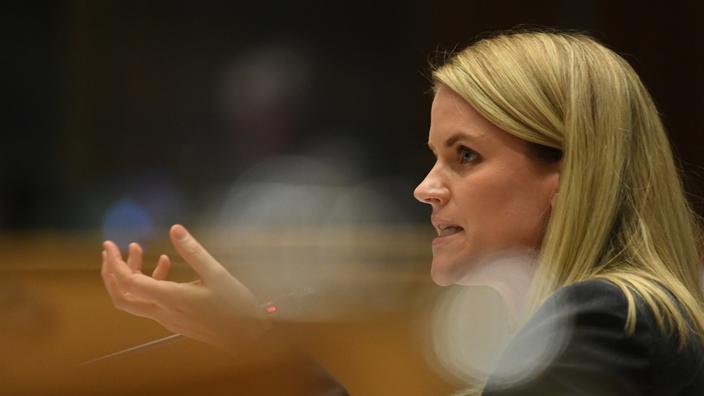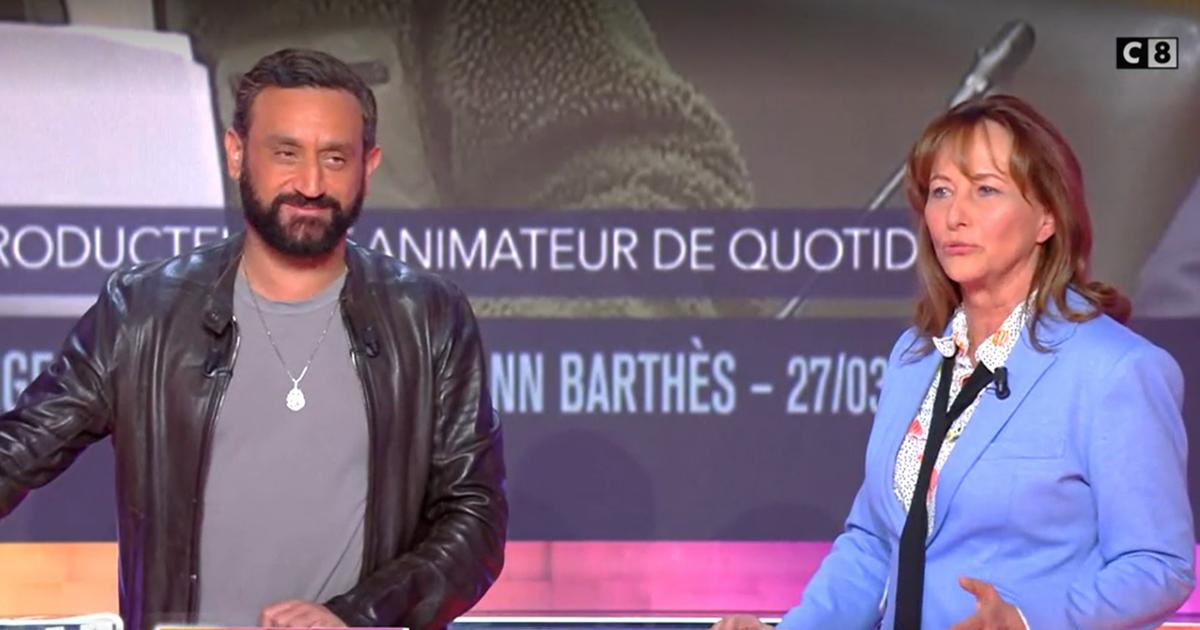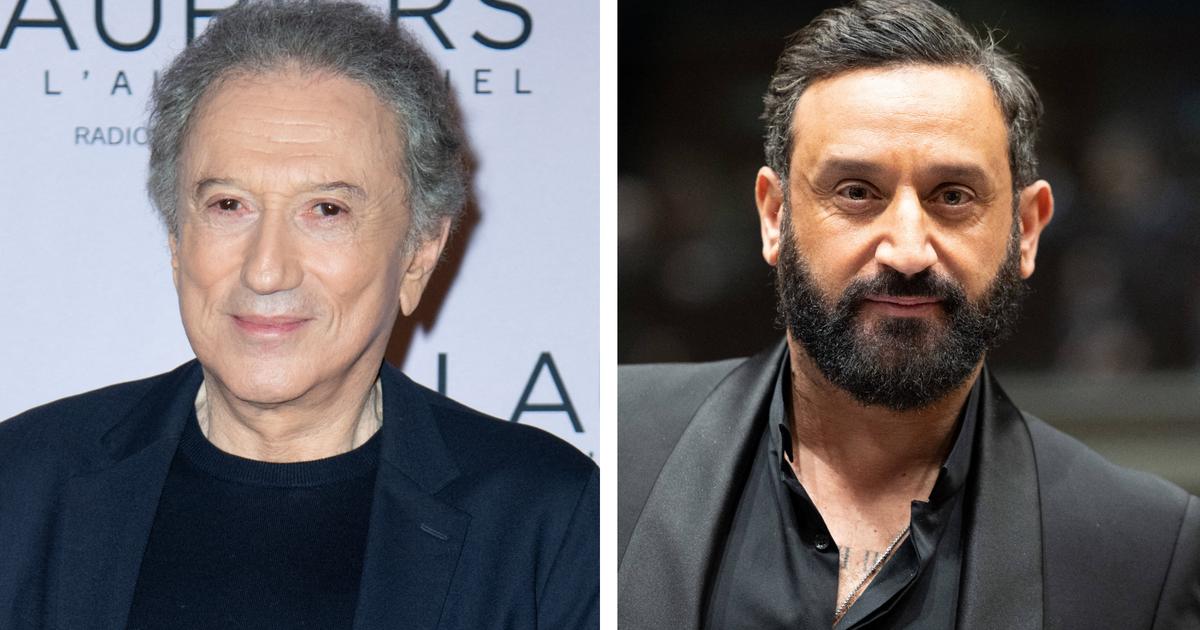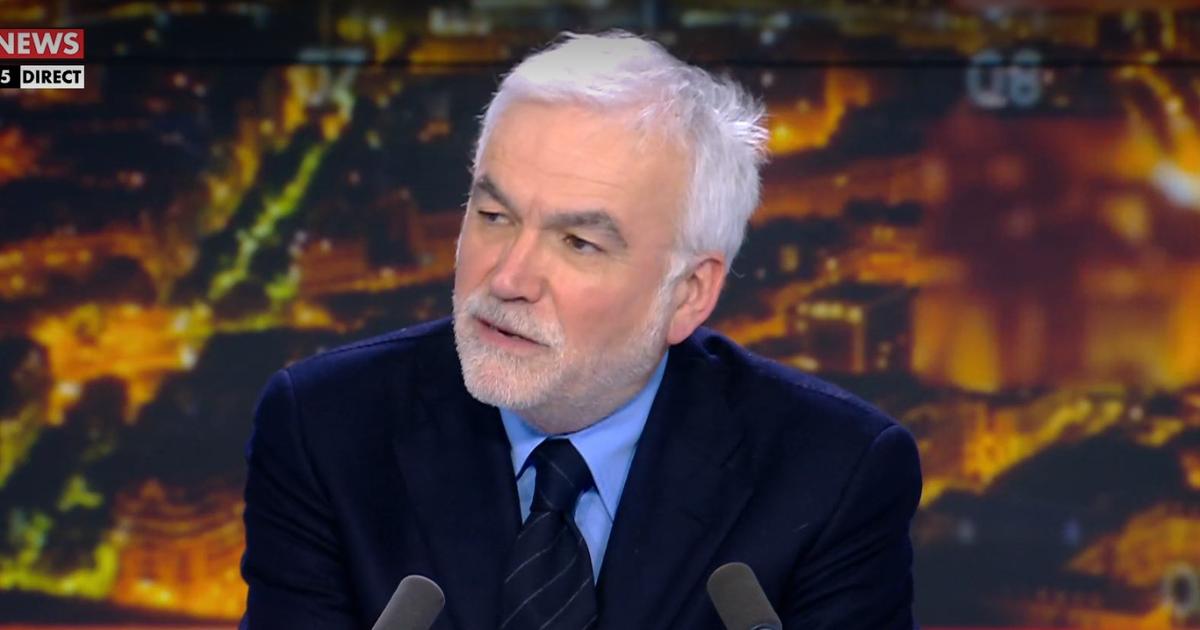“
Facebook puts profit before security
”.
Questioned by the Law Committee and the Economic Affairs Committee of the National Assembly this Wednesday morning, the whistleblower Frances Haugen returned to her main criticisms of the company of which she was an employee until May 2021. She thus painted an unflattering portrait, in front of the national representation, of certain practices of the group, in particular in terms of detection and moderation of hate content.
Read alsoFrom Facebook to Meta: why does a company change its name?
The diagnosis made by Frances Haugen on Facebook has been detailed on several occasions before various assemblies.
Since the revelation of the “
Facebook Files
”, a series of internal documents that she has withdrawn from the company, Frances Haugen has been heard by the American Congress, the British Parliament or even before the Web Summit in Lisbon.
The questions of the French deputies therefore focused more on the means to be implemented to regulate Meta - the new name of the group -, on the protection of whistleblowers or on the question of the anonymity of social networks, recurring in debates in France.
"
Facebook represents a risk for democracy
"
French MPs have repeatedly expressed their concerns about the impact of Facebook's practices on democratic processes.
Frances Haugen confirmed their concerns on this subject.
“
Facebook is a danger to democracy,
” she says.
“
Facebook must not remain at the same time judge, juror, prosecutor and witness.
We need more transparency.
These companies need to be accountable.
"This transparency is necessary for effective regulation:"
if we don't know exactly what Facebook is doing, we can't ask them the right questions.
"
French language moderators are missing
Supporting documents, Frances Haugen has explained on numerous occasions that Facebook's means of moderation, whether it is automatic processing thanks to artificial intelligence or human moderation, are primarily focused on the English language and more to American English.
“
French is not treated well, like other European languages.
This creates security problems, for example in the fight against disinformation on Covid-19.
The whistleblower wants Facebook to be forced to disclose the number of moderators allocated to each language, which it has always refused to do.
“
I can tell you that there are not enough French-speaking moderators at Facebook.
The problem is even more glaring in the countries of the South and in the conflict zones where several languages and dialects coexist.
A risk assessment system in “
1, 2,3
”
Faced with Facebook's shortcomings in terms of moderation, Frances Haugen details a “
1, 2, 3
”
strategy
to get platforms to be more transparent. Concretely, Frances Haugen recommends that Tech companies conduct an internal assessment. The public, that is to say regulators or NGOs, should, in her opinion, carry out another assessment of the practices. Finally, a data monitoring mechanism should, in her opinion, be put in place. "
Do not believe Facebook when it says that transmitting data twice a year is too complicated
", warns Frances Haugen, who even advocates a "
weekly
"
follow-up
of Facebook practices via a data publication: "
to guarantee the safety of individuals, it will be necessary to be very intrusive
”.
Frances Haugen declares herself in the open and carries out her activity thanks to donations
While French parliamentarians are currently studying the transposition into national law of a European directive on the protection of whistleblowers, several questions have been addressed on the risks and threats that could weigh on Frances Haugen.
“
It should be noted that not all whistleblowers necessarily have the means to speak out. They don't always have enough money,
”argues Frances Haugen. "
Me, I'm older, so I have more money,
" argues the one who told the New York Times to live on her investments in cryptocurrencies. Yet "
I have a negative balance of $ 250,000 today,
" she told MPs. His travels across Europe are currently funded by "
donations
". The young woman is indeed supported by NGOs, such as Luminate of billionaire Pierre Omidyar (founder of eBay).
The whistleblower also insists on the psychosocial risks associated with this role.
"
Some whistleblowers develop symptoms close to post-traumatic syndrome
", she insists, before stressing the importance of "
psychological support
".
She herself explains having benefited from therapy.
She further explains that people who would like to speak simply do not know who to contact and what steps to take.
“
There is no emergency number for this,
” she emphasizes.
Go back to the “
2009
”
Facebook algorithm
The whistleblower, who points to the ranking of content based on engagement as one of the main problems of the platform, believes that it is necessary to return to the functioning of Facebook "
of 2009
", that is to say when the algorithm prioritized content posted by friends or family.
Since then, Facebook has reoriented its algorithm to favor posts from groups, which, according to Frances Haugen, has the bias of directing users to polarizing groups.
“
For example, in Germany, Facebook has recommended Nazi groups to its users
,” argues the former employee.
It is in a logic of commitment that this pivot was initiated, according to her.
“
This is the best way to make you stay longer on the platform.
If you saw more of your family's content, you would spend less time there
”.
Read also French elected officials ready to hear Frances Haugen, the former American employee of Facebook
Anonymity on social media is not a reality, according to Frances Haugen
The question of the anonymity of people on social networks, which regularly worries French lawmakers, was submitted to Frances Haugen.
"
I do not think that finding the identity of people will improve things,
" she said.
“
Facebook already has the means to identify [Internet users] through the data they collect.
You would be surprised to know what they can do with WiFi for example
”.










/cloudfront-eu-central-1.images.arcpublishing.com/prisa/KMEYMJKESBAZBE4MRBAM4TGHIQ.jpg)



